One of the most sacred events of the Islamic calendar is the Holy month of Ramadan (Ramazan). Period, saturated with many rites, traditions and taboos that every believer awaits with trepidation. In 2019, the days of the month of Ramadan fall on the period from May 5 to June 3, when Muslims observe a strict fast(sauwm), completely refusing food and water in the daytime. There are students in Pitirim Sorokin Syktyvkar State University who are professing Islam. We asked the guys from Palestine, Egypt, Kyrgyzstan and Algeria to tell us about the month of Ramadan in their lives and how they keep the sauwm far from their homeland.
Bakai Sydykov, Kyrgyzstan, 20 years old
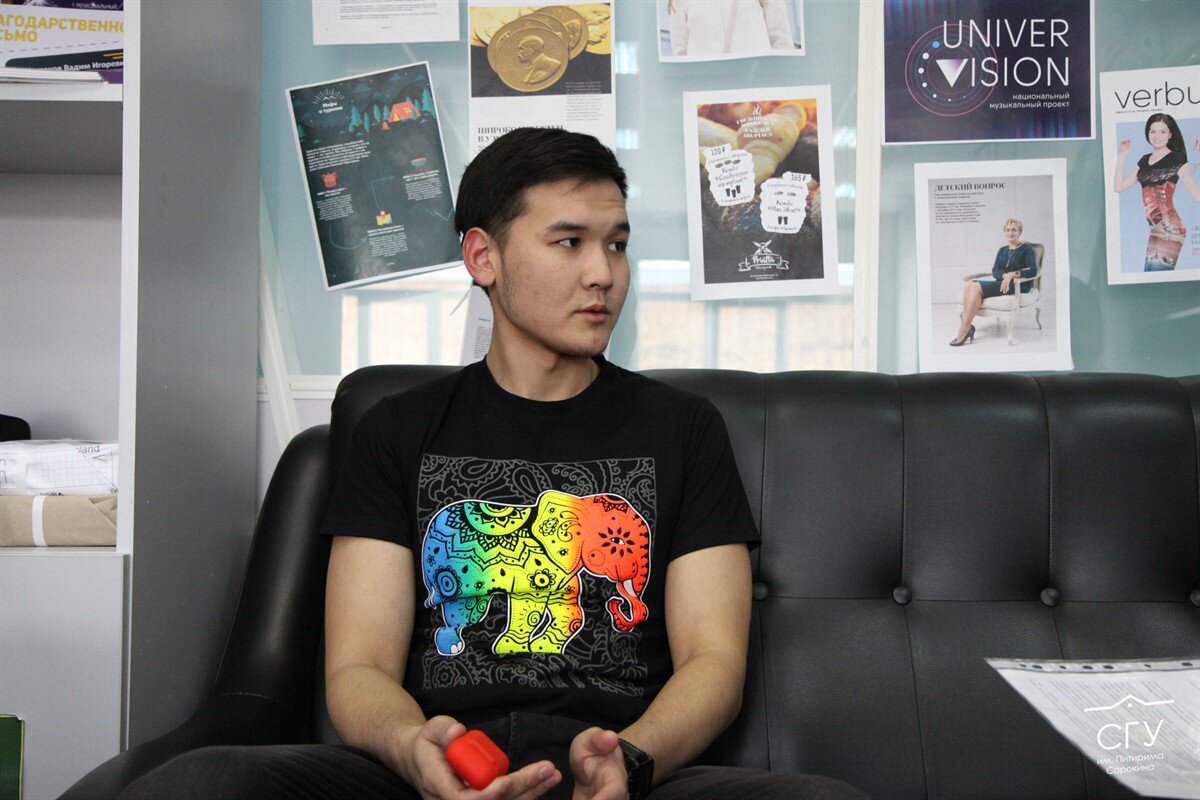
At the beginning of fast (sauwm), every Muslim expresses his or her personal intention to fast. The words of consent are pronounced daily putting as much sincerity into them as possible. Every year the dates of fasting are shifted ten days ago.
As far as I know, you can eat some certain food and drink water in unlimited quantity in the Orthodox faith during fasting. Religious person by the Islamic faith during fasting abstains from any food or water until sunset. Also we cannot swear, drink alcohol and smoke. According to a popular proverb: “Сабырдын түбү сары алтын”, which means “Who is modest, he is gold worthy”. If we are patient, there will be more in the future.

Observing fast in Syktyvkar is harder than in Kyrgyzstan. Daylight is longer and there are white nights here. We have a sunset in Bishkek at 20:00 and we can eat seven hours a day. But in Syktyvkar we can eat four hours a day. The thing that makes fasting easier is the increased air humidity and coolness, from which there is no strong thirst, as at home.
If two muslims live together in a dormitory, and one of them observe a fast but the other one does not, he eats and drinks right in front of his friend, this is regarded as a sin.
I lost a lot of weight for over a month last year. I weighed 72 kilograms when my height (tall) is 1.9 meters. For me it was bad, because the body was exhausted, and it was difficult to recover. The month of Ramadan (Ramazan) is not a sacrifice, it is a gratitude to God that you have something to eat, where to live and what to wear. You appreciate everything that you have and that you are given in this world in this month.
Mohammed Najar, Palestine, 19 years old
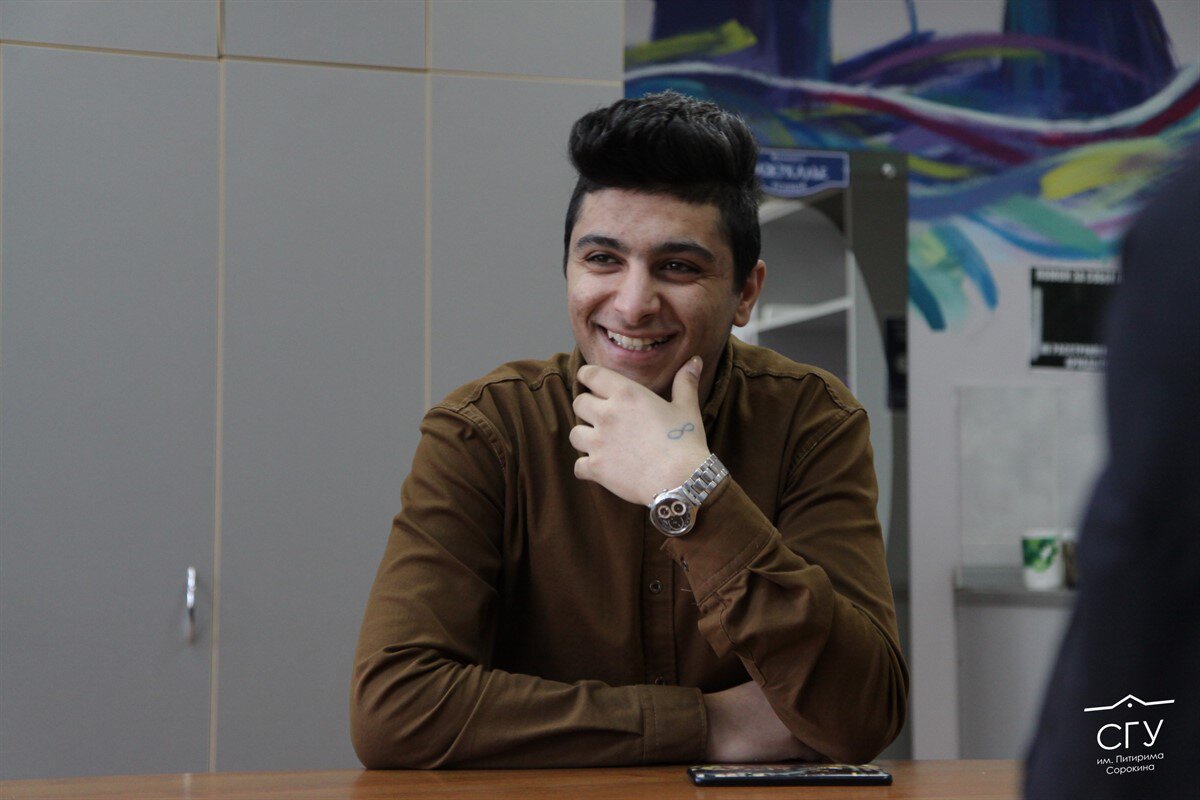
Ramadan is a very important holiday for all muslims and this month is different from all others.
Throughout Ramadan, Muslims eat early in the morning, before dawn, and it is called suhur. Iftar is an evening meal, which is also performed during fast, but only after sunset. There is a saying that it is possible to eat and drink in the period until it is impossible to distinguish the white thread of dawn from the black thread. In Syktyvkar, fast is harder to keep, because instead of 15 hours we do not eat 21 hours in a day because of the long daylight.
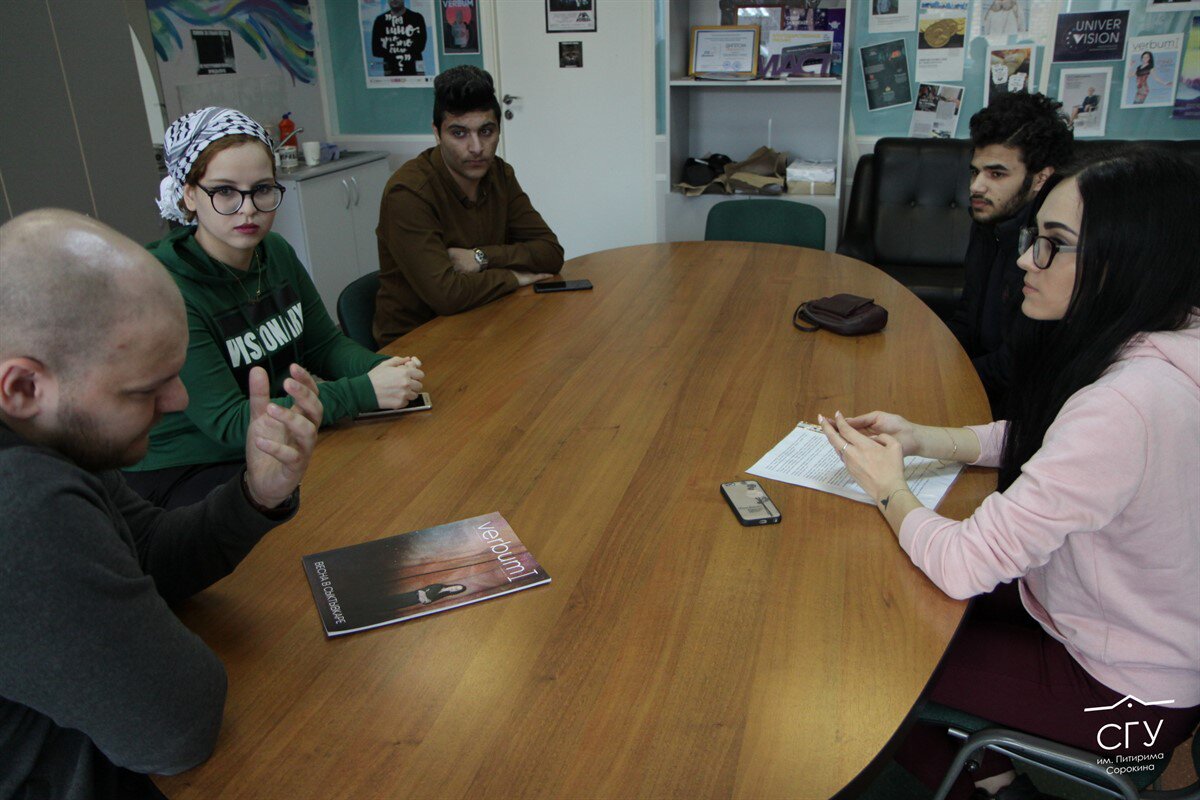
The Holy month of Ramadan is a holiday: the streets are decorated in various ways, everyone invites each other to visit for national dishes in the evening. In Ramadan, every homeless and needy person will find a place to eat and drink, he will never be hungry.
Despite the abstinence and patience in the month of Ramadan, it is a holiday for me. At this time, there are a lot of events, concerts and entertainment related to Ramadan in my Homeland, and the whole family gathers together at my grandfather’s house. It will be harder in Syktyvkar, as there is no atmosphere of celebration and family support nearby.
Chaimaa Smaali, Algeria, 21
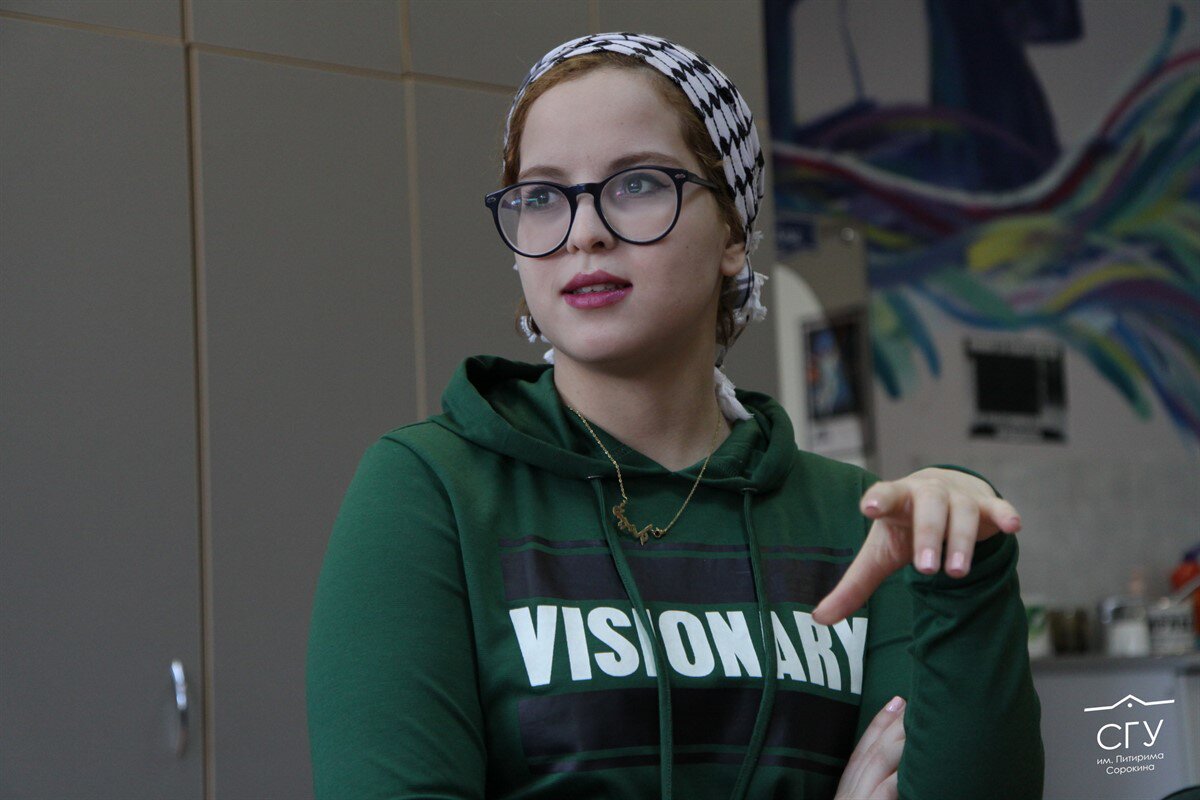
I began fasting at 12 years. There are five main pillars that are very important for Islam.
- Shahadah – a testimony of faith in Allah, whose messenger is Muhammad;
- Salat – the rite of five daily prayers;
- Zakat – almsgiving;
- Sawm – the observance of the thirty-day fast during the holy month of Ramadan;
- Hajj – pilgrimage to the city of Mecca, if a person is capable of it.
All sins committed during Ramadan require atonement. For an unintentional violation of the fast, the muslim is obliged to replenish the missed fast by one day of fasting outside Ramadan, pay a certain amount to the poor, or donate products purchased with this money. Traditional dishes in Ramadan are Kunaf, Knaf, Kotayef, Harisa*.
Fasting reminds people of the poor and also calls for being merciful and helping those in need. Challenging it, we, the believers, remember about kindness and humanity, as well as the fact that all are equal before God.
Ibrahim Kazem, Egypt, 19 years old
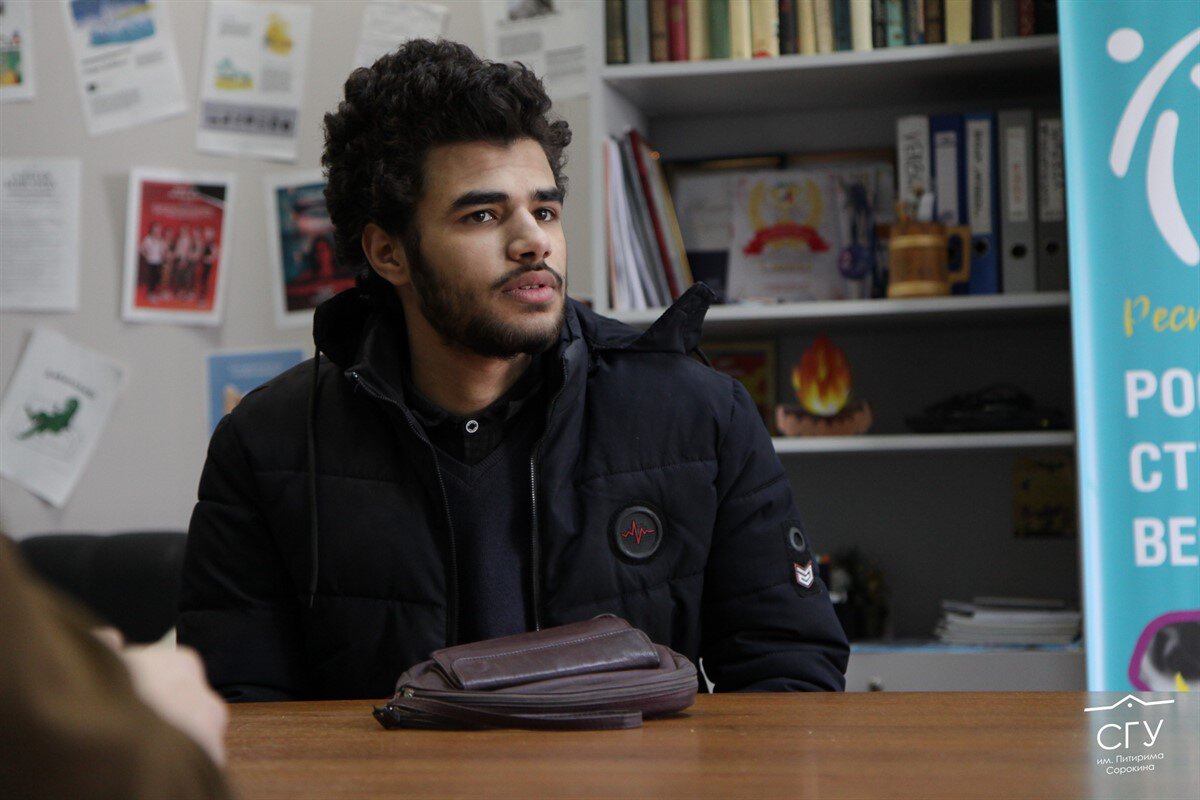
In Egypt, during Ramadan, you can see fanus everywhere, it is a colorful lantern of bizarre shape, which the inhabitants of Egypt lit in honor of the Holy month of Ramadan since the time of the Fatimids**. The smell on the streets is incredible because we prepare special pastries for Ramadan. Young people tend to volunteer, clean the streets, or help the elderly. A large percentage of Christians also participate in Ramadan in Egypt.
It will be hard for me this month to be away from home, because it is not enough parental warmth and comfort for me.
Arina Potasova, Faculty of Journalism, 2nd year
Translation By Nikolay Spichak
Photo by Oleg Urazov and from open sources
*Kunafa, katayef — Eastern sweets made of dough. Kanafeh is a sweet dish of Arabian cuisine, made from kadaif pasta and goat cheese. Harisa — mashed soup of boiled wheat and poultry.
**Fatimids — a dynasty of Muslim caliphs that ruled from 909 to 1171
